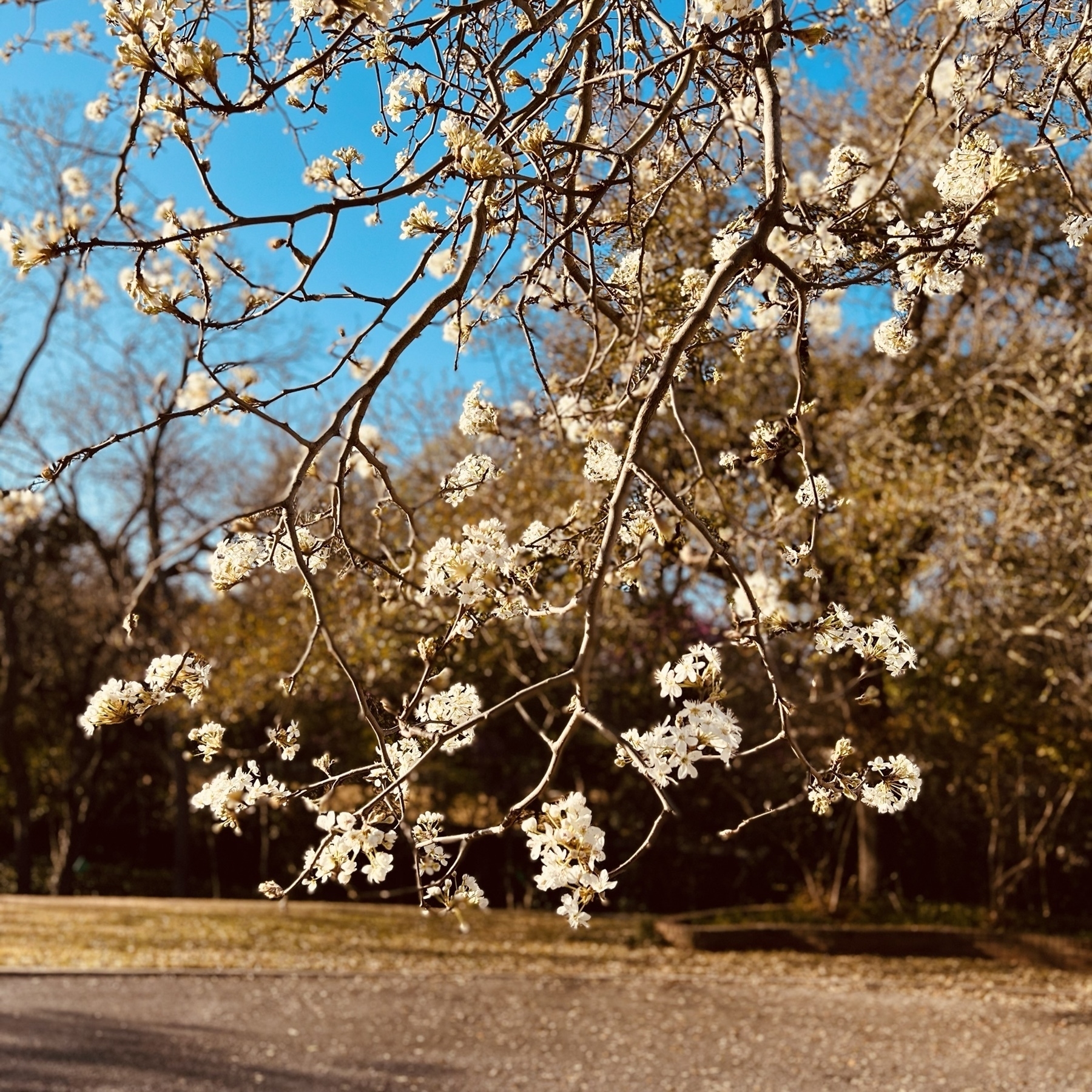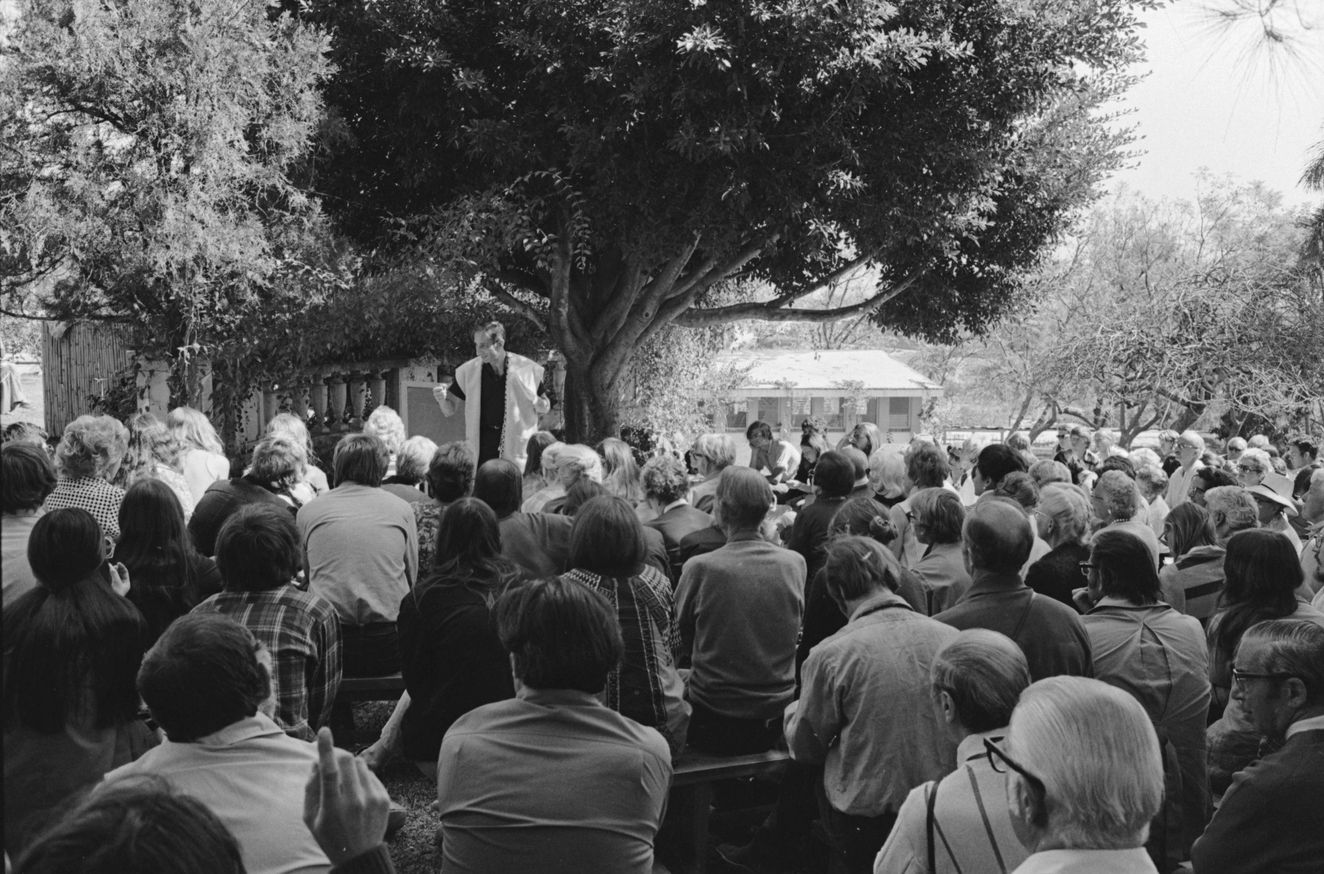The Main Cathedral of the Russian Armed Forces was sprinkled with holy water by Patriarch Kirill in 2020, but that does not mean it is holy. It has forsaken the elegant curves of a traditional Russian dome to deliberately resemble nuclear missiles (which Russian priests have cheerily blessed). The classic two-dimensional apse mosaic of Christ has been swapped out for a tacky sculpture, defying centuries of Orthodox wisdom which traditionally eschewed three-dimensional representation. Defending the six billion ruble expenditure, one Orthodox priest said that “metal, wood, glass and talent were offered practically free, for a few kopecks. People worked, worked hard for the glory of God.” His statement calls to mind another priest, Aaron: “Then they gave me the gold, and I threw it into the fire, and out came this calf” (Exodus 32:24).
Read on to learn of the role played by the Mother of God.
critique and repair
Here’s my friend Sara Hendren, a couple of years ago, on critique and repair:
We’re seeing critique in the public sphere: criticism of leadership, of the weaknesses in our infrastructural systems, of our cultural confusion about acting collectively. Critique is alive and well (thank goodness!). What are its modes of action? Critique unmasks hidden or suppressed realities. It reveals ugly truths. It subverts or even negates mainstream or inherited or lazy narratives. We’re seeing its vivid power in every variety: in words and images, in books and popular culture, and naturally, on social media. It’s a beautiful (and alternately wrenching, and always vital) thing to witness.This is great stuff.We’re also seeing rhetorical acts of repair: proposals for new worlds that might be prototyped anew in the wake of disaster. There are calls for new models of business and medicine and education, newly flexible work structures, new forms of architecture and urban planning, new service models for community safety. The longer work of these reparative ideas has yet to be tested, but if we stay with just the rhetorical — these first acts of naming and calling for repair — we can identify its complementary modes of action. Repair language suggests new futures. It invites possibility. Perhaps it translates ideas from the past that might be reinvigorated or more accessibly understood, or perhaps it enchants by asking: what if? What if this new different thing could come to life?
I’ve been wanting to respond to Sara’s outline-for-thinking for some time (the text file in which I’m writing was created a year ago) but I keep hesitating. I hesitate because I’m thinking about this:
Understanding each mode [critique and repair] as a post — as a vantage with a view of the horizon that is necessarily partial, with particular assets and with unavoidable drawbacks — is one way to sidestep the often corrosive debates about “civility” that tend to explode in urgent times. Instead of policing the tone of others, wanting either less or more anger, less or more imagination and kindness, we might instead ask: What is my post? And what might be the alternate, equally productive posts of others, the ones who may well be moving toward a shared horizon? We don’t have to be the same. Each project is different, its actions and its affordances. By occupying one, you gain some things and you lose some things—and by occupying the other, the same is also true.I am more skeptical about critique than Sara is, but that may be because, as she puts it, repair is what I have seen as my post, my calling -- which might make me insufficiently appreciative of those who see critique as their post.
Also, in some follow-up thoughts, Sara describes a certain mode of “technological critique” which involves “the articulation of urgent socio-political questions made real in things. Things-to-think-with, which is not just for the gallery viewer. They’re public technologies with high stakes attached.” This notion of designed and constructed entities as critique evades some of my concerns, because my skepticism about critique arises from its loose and careless deployment of language. The deployment of things – well, that’s different.
But most of us think of critique as something done with words; so maybe I should just plunge ahead. And isn’t that what a blog is for? – plunging ahead, I mean, even if only to retreat later. Floating trial balloons and then waiting for them to be shot down, or shooting them down yourself. So … some thoughts, presented in aphoristic form but subject to later development:
-
The prospect of critique appeals – it looks easy, which is one reason why so many people try it – but is very difficult to do effectively; the prospect of repair intimidates, but almost any sincere attempt at repair is helpful or at least instructive (to those who perform it and those who observe).
-
The dominant venues of our discourse today – social media and other online environments – promote the degeneration of critique into snark or mockery by their encouragement of (a) the mere performance of virtue and (b) a distancing, physical and otherwise, from the objects of one’s critique.
-
Critique tends to do its best work when the critics know that they must share a substantive lifeworld with the people they are critiquing – even as they argue that the contours and structures of that lifeworld must become radically different than they are.
-
Actual repair is hard to dislike. The I-did-the-best-I-could-with-what-I-had ethos of There, I Fixed It inspires as much admiration as derision.
-
Repair without critique hobbles; critique divorced from repair corrodes.
-
Asking “How can I improve this situation?” is almost always a better question than “Whose fault is this?” – and indeed, that second question can become more useful and meaningful when it is asked as part of the process of answering the second.
-
Les Murray, “Politics and Art”:
Brutal policy,8) Lesslie Newbigin: “The redemption with which He is concerned is both social and cosmic, and therefore the way of its working involves at every point the re-creation of true human relationships and of true relationship between man and the rest of the created order.”like inferior art, knows
whose fault it all is.
Sergei and Aimee

Another story from Salka Viertel's The Kindness of Strangers:
Eisenstein and his friends wanted to explore the religious and the sinful Los Angeles, and the first stop on our itinerary was Aimée Semple McPherson's Angelus Temple, which promised to combine both. We were lucky in hitting upon one of Aimée's most glamorous productions. With a new permanent wave in her blonde hair, in a white silk gown, clutching red roses to her heart, she appeared at her pulpit to receive a frenetic ovation from a packed house. Her sermon appealed to the senses. She assured her audience that the Lord is sweet, and made gourmet sounds, tasting Jesus on her tongue — the congregation drooled and smacked their lips. The Russians were delighted.

two quotations on age
It’s only in your twenties and in your seventies and eighties that you do the greatest work. The enemy of society is the middle class, and the enemy of life is middle age. Youth and old age are great times — and we must treasure old age and give genius the capacity to function in old age — and not send them away.
The idea you have when you’re young, to reach the edge of what can be done with your abilities and find out what might happen if you went past it? You promise yourself you’ll try but then wake up fifty years later to discover that you were in fact always too sensible to push things until they fell over, in case people thought less of you. In your seventies, though, it doesn’t seem to matter any more what other people think. That’s probably the first phase of your life in which you can actually do what you want. And certainly the last.
A true word from Laura Kipnis: “Rest assured, today’s moral grandstanders will be tomorrow’s thought criminals.”
the power of priors
Remembered today as an escape artist who was one of the first Hollywood stuntmen, Houdini was equally well known during his lifetime for his campaign against spiritualism. Houdini’s repertoire of magic tricks placed him in an ideal position to spot fraud: the ectoplasm often seen to extrude from mediums’ mouths, for example, bore a suspicious resemblance to the act in which he swallowed a needle and thread and showed spectators his empty mouth, only to pull threaded needles out from between his teeth a moment later. Conan Doyle returned the compliment, charging Houdini with surreptitiously drawing on psychic powers. Since there was no natural way for a straitjacketed man to escape from a locked trunk, the only possible explanation was that he possessed an uncanny ability to turn bones into ectoplasm at will.
scissors in the head
And yet the interaction between censors and those they suppress can be complex, as illustrated by an encounter I had with one of these guardians in the late 1970s while I was in exile in Holland. A compilation of my short stories was under contract with Aufbau, a prestigious East German publishing house, so my wife and I crossed into foreboding East Berlin to discuss the final contents with my editor. Over lunch, he explained that only one of the stories would not appear in the collection. Before he named it, I knew it had to be “Reader.” Its protagonist, Don Alfonso, an eagle-eyed censor serving a Latin American dictatorship, receives the manuscript of a treasonous novel whose main character seems based on his own life, revealing his most secret desires. Ultimately, rather than suppressing that story — akin to suffocating his own image in a mirror — he allows it to circulate, putting himself and his son in danger.
Though I may have been naive to think that such a tale could be published under a regime that was restraining speech in the name of the victorious proletariat, I nevertheless trusted that my editor would find a way to include it. He did not lack courage, having fought for the Spanish Republic and then against Hitler, and I knew that he respected literature that was not typical social-realist fare. But when I asked him what was wrong with the story, he cited aesthetic arguments: it was stylistically awkward, not well constructed. Why embarrass him by pointing out that the real reason behind his decision was political, that my fiction, inspired by events in my native Chile, could be construed as criticism of the government to which he had pledged allegiance? He had Schere im Kopf (scissors in the head) — a phrase that Berkowitz quotes about censors in East Germany.
I did not, however, valiantly withdraw my truncated collection from Aufbau. Choosing compromise over confrontation, I opted not to forfeit the rest of the stories by defending one of them. That sort of calculation also forms part of the history of censorship. There are innumerable authors who have accommodated themselves to the strictures of the state or worked their way around them. One cannot fully grasp how the struggle for free expression has developed without taking into account such maneuvers.

Currently reading: Invisible Man by Ralph Ellison 📚
Taken as the tornado sirens sang.

cancel it
Ken White’s post on the problems with defining “cancel culture” — or maybe it’s better to say, the problems with declining to define it — put me in mind of something I wrote a few years back on “exhausted languages”:
Often when I’m grading essays, or talking to my students about their essays, I notice that a certain set of terms are functioning axiomatically for them in ways that impede actual thought. When that happens I will sometimes ask, “How would you describe your position if you couldn’t use that word?” And I try to force the same discipline on myself on those occasions (too rare of course) when I realize that I am allowing a certain set of terms to become an intellectual crutch.
My recommendation: Never, ever use the term “cancel culture.” Speak instead about the specific behavior you either want to reject or endorse.
The Crimson Pirate

If you want to have a good time, watch The Crimson Pirate (1952). It’s absolutely delightful. Years ago a critic — can’t remember who — described that masterpiece of cinema Nacho Libre as “endearingly ridiculous,” and that description applies to The Crimson Pirate as well.
(Among other things, you get this fellow in a small and uncredited role:

Yep, it’s Christopher Lee!)
That bearded fellow next to Burt Lancaster in the picture at the head of this post? That’s Nick Cravat, who was Lancaster’s old friend and one-time partner in the circus. Burt kept him on his payroll — as his personal trainer, which for all I know was true — for decades, and got him into movies, but typically (and here) in non-speaking parts, because his Brooklyn accent was both thick and utterly ineradicable. Many moviegoers over the years assumed that Nick was actually mute. He’s very funny in this movie, like a muscular Italian Harpo Marx.
But here’s my favorite little fact: The exteriors were mostly filmed on and around the island of Ischia, in the Bay of Naples — which is where Auden lived in the summer months from 1948 through 1957. I love to imagine Auden sitting in a favorite taverna — in those years he developed a love for Negronis, and made a point of having one or two every night before dinner — and looking across the tables to see …

I am huge fan of the wines made by Steve and Jill Matthiasson, and one of their most remarkable products is their sweet vermouth, which is not like anything else I’ve tasted. In a recent newsletter they tell us, graphically, how they make it:

complete control
Allow me to tell you about a memorable scene from Salka Viertel’s compelling memoir The Kindness of Strangers. In their native Austria and later in Germany, she and her husband had worked in films, she as an actress and he as a director. They came to California in the 1920s, planning to stay just a few years, but with the rise of Hitler they decided that — especially since they were Jewish — they could not return. In the Thirties their home would serve as a kind of salon for their fellow refugees, and Salka became an energetic social activist. But her day job was as a screenwriter for MGM. That’s the context for this tale:
Having listened to the Sunday afternoon Philharmonic concert from New York, at which Schoenberg’s Transfigured Night (Verklärte Nacht) was performed, Thalberg decided that Schoenberg was the man to write the score for The Good Earth. Next day the producer Albert Lewin came to my office and asked if I could talk to Schoenberg. I explained that long ago Schoenberg had given up the style of Transfigured Night and had been composing twelvetone music, which I doubted Irving would like. However, I promised to do my best to arrange a meeting. I knew that Schoenberg was having a hard time; he was giving lessons, which took many hours from his own work. I asked him if he would be interested in doing the scoring of Good Earth.Or, in today’s money, half a million clams. So Viertel arranges a meeting, and Schoenberg and his wife duly come to Thalberg’s office at MGM. Viertel, who was there to translate, resumes the narration:“How much would they pay?”
“Around twenty-five thousand dollars, I suppose.”
I still see him before me, leaning forward in his chair, both hands clasped over the handle of the umbrella, his burning, genius’s eyes on Thalberg, who, standing behind his desk, was explaining why he wanted a great composer for the scoring of The Good Earth. When he came to: “Last Sunday when I heard the lovely music you have written....” Schoenberg interrupted sharply: “I don’t write ‘lovely’ music.”Schoenberg departs, with, unsurprisingly, no firm agreement having been reached. Then:Thalberg looked baffled, then smiled and explained what he meant by “lovely music.” It had to have Chinese themes, and, as the people in the film were peasants, there was not much dialogue but a lot of action. For example, there were scenes like that where the locusts eat all the grain in the fields which needed special scoring, and so on. I translated what Thalberg said into German, but Schoenberg interrupted me. He understood everything, and in a surprisingly literary though faulty English, he conveyed what he thought in general of music in films: that it was simply terrible. The whole handling of sound was incredibly bad, meaningless, numbing all expression; the leveling monotony of the dialogue was unbearable. He had read The Good Earth and he would not undertake the assignment unless he was given complete control over the sound, including the spoken words.
“What do you mean by complete control?” asked Thalberg, incredulously.
“I mean that I would have to work with the actors,” answered Schoenberg. “They would have to speak in the same pitch and key as I compose it in. It would be similar to ‘Pierrot Lunaire’ but, of course, less difficult.”
After a pause Thalberg said: “This is a remarkable man. And once he learns about film scoring and starts working in the studio he’ll realize that this is not like writing an opera.”“You are mistaken, Irving,” I said. “He’ll invent a revolutionary kind of scoring.”
“He’ll write the music on my terms, you’ll see.”
Next morning Trude Schoenberg telephoned me that the price of prostitution had doubled. For his complete control of the film, including the dialogue, Schoenberg was asking fifty thousand, otherwise it was not worth his time and effort.






